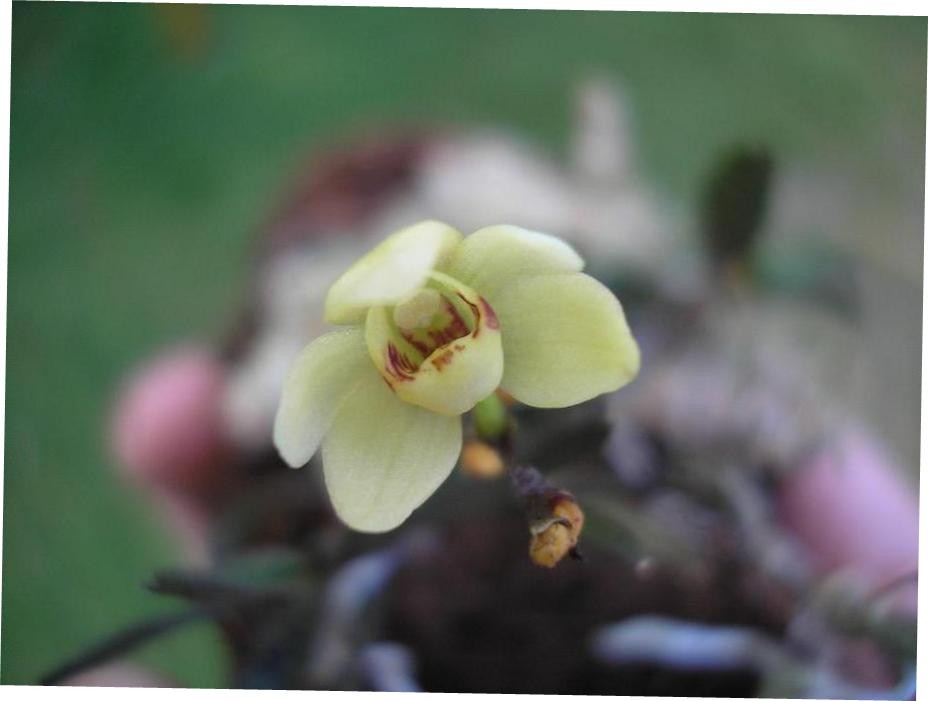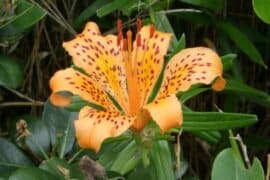East Asian thrixspermum
(Thrixspermum japonicum)

Description
Thrixspermum japonicum, known as East Asian thrixspermum, is a species of orchid native to Korea, south-central and southern Japan, and parts of China (Fujian, Guangdong, Guizhou, Hunan, Sichuan, Taiwan). Thrixspermum, commonly known as hairseeds is a genus of flowering plants in the family Orchidaceae. Orchids in this genus are epiphytes, lithophytes or terrestrial plants with flat, leathery leaves and short-lived flowers with the sepals and petals more or less similar to each other. The labellum is rigidly fixed to the column and has three lobes. The side lobes are erect and the middle lobe is thick and fleshy. There are about 190 species distributed from tropical and subtropical Asia to the Western Pacific. Most species grow in lowland or tropical rainforests up to an altitude of 1,200 m. Orchids in the genus Thrixspermum are epiphytic or lithophytic, rarely terrestrial, monopodial herbs with long thick roots, and flat, fleshy leaves arranged in two ranks with their bases sheathing the stem. The flowers are arranged on a pendulous or arching flowering stem arising from a leaf axil. The flowers are usually short-lived and often open for less than a day. The sepals are free from and more or less similar to each other. The petals are free from each other and similar to, but slightly shorter than the sepals. The labellum is stiffly attached to the column with a pouched base and three lobes, the side lobes erect, usually short and blunt and the middle lobe thick and fleshy. The fruit is a long, thin capsule. The genus Thrixspermum was first formally described in 1790 by João de Loureiro in Flora Cochinchinensis.The name Thrixspermum is derived from the Ancient Greek words thrix (θρίξ), meaning "hair" and sperma (σπέρμα) meaning "seed".
Taxonomic tree:







